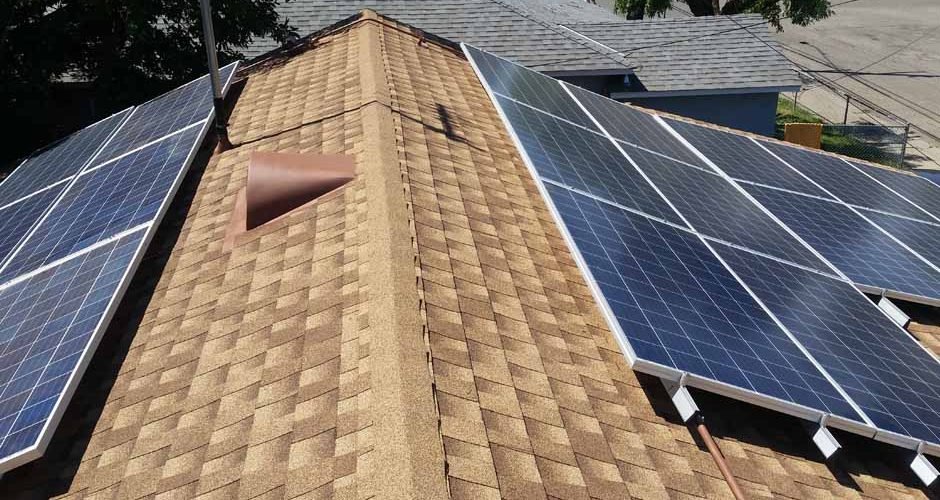Solar panels have gained immense popularity in recent years as a sustainable and environmentally friendly source of electricity. They harness the power of the sun to generate electricity, reducing greenhouse gas emissions and offering potential long-term savings on energy bills. Nevertheless, before investing in solar panels, it’s paramount to comprehend their costs and whether they are worthwhile. We will delve into the costs of solar panels and evaluate their overall worthiness.
Table of Contents
The Initial Investment
The cost of solar panels primarily depends on various factors, including the size of the system, the type of panels chosen, and the location of your property. On average, the initial cost of a residential solar panel system in the United States can range from $10,000 to $25,000 before incentives or rebates. For a more detailed estimate, it’s essential to consult with local solar installers who can provide accurate quotes based on your specific requirements.
Factors Affecting Solar Panel Costs
1. System Size:
The size of the solar panel system you choose will significantly impact the cost. Larger systems capable of generating more electricity will generally cost more upfront. The system size should be tailored to your energy needs and available roof space.
2. Type of Panels:
Solar panels come in diverse types with varying efficiencies and price points. Monocrystalline and polycrystalline panels are the most common types. Monocrystalline panels are more efficient but come at a higher cost. Polycrystalline panels are generally less expensive but slightly less efficient.
3. Location:
Your geographical location plays a paramount role in determining solar panel costs. Sunnier regions tend to have more favorable conditions for solar power generation, potentially lessening the number of panels demanded for the same energy output.
4. Installation Costs:
Installation costs, including labor and necessary equipment, can also add to the overall price of your solar panel system. The complexity of the installation, such as the type of roof and any demanded electrical work, can affect these costs.
Financial Incentives and Rebates
One of the most noteworthy elements that can make solar panels more reasonable is the availability of financial incentives and rebates. Governments, both at the federal and state levels, often propose incentives to facilitate the adoption of solar energy. These incentives can comprise tax credits, grants, and rebates, significantly lessening the upfront solar panel installation costs. For instance, the Federal Investment Tax Credit (ITC) in the United States enables homeowners to deduct a percentage of their solar panel system’s worth from their federal income taxes. State-level incentives further enhance these savings. It’s paramount to research the available incentives in your area and profit from them to make solar panels more cost-effective.
Long-Term Savings
While the initial investment in solar panels may seem high, evaluating the long-term savings they can furnish is paramount. Solar panels reduce your electricity bills and, in some cases, even allow you to sell excess electricity back to the grid, further offsetting costs.
1. Reduced Electricity Bills:
Solar panels yield electricity from sunlight, lessening your reliance on electricity from the grid. This translates to lower monthly electricity bills. In many cases, homeowners glimpse a substantial decrease in their electricity expenses, which can compensate for the initial investment over time.
2. Net Metering:
Many regions have net metering policies that permit homeowners to earn credits for excess electricity generated by their solar panels. These credits can offset future electricity bills, potentially resulting in noteworthy savings.
3. Increased Home Value:
Solar panels can boost the significance of your residence. A U.S. Department of Energy study found that residences with solar panels sold for more than those without. This boost in property value can contribute to the prevalent return on your investment.
Maintenance Costs
Solar panels are relatively low-maintenance, another element to contemplate when evaluating their worthiness. They generally mandate minimal cleaning and periodic inspections to ensure they function optimally. Most reputable solar panel manufacturers propose warranties that cover system components for 25 years or more, furnishing peace of mind regarding potential maintenance costs. It’s paramount to factor in any potential maintenance costs when evaluating the overall cost of solar panels. While these costs are generally low, they should be considered to make a knowledgeable decision.
The cost of solar panels alters based on diverse factors, including system size, panel type, location, and installation costs. Despite the initial investment, solar panels propose significant long-term savings through reduced electricity bills, financial incentives, and potential income from excess energy production. Additionally, they provide environmental benefits by reducing carbon emissions and promoting sustainability.
Conducting a thorough cost-benefit analysis tailored to your specific circumstances is crucial when considering solar panels. Use available incentives and consult with an experienced solar company in Portland to obtain accurate quotes. While the upfront cost may be a concern, the potential for long-term financial savings, environmental benefits, and increased property value often make solar panels a worthwhile investment for homeowners looking to reduce their carbon footprint and save on electricity costs.





